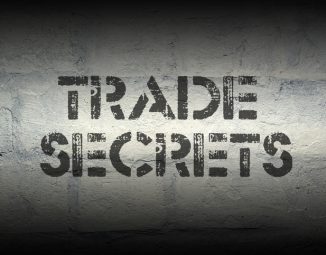Obama Signs Law Giving Trade Secrets Federal Protection
A company’s confidential trade secrets are their most coveted assets and give a company a competitive edge over its competitors. Such trade secrets may include product specifications and formulas, recipes, computer algorithms, marketing strategies, manufacturing techniques and processes, and unpatented inventions, to name a few. Given the value of corporate trade secrets, companies often go to great lengths, and spend lots of money in litigation costs, to prevent their employees and contractors from stealing or disclosing their trade secrets to people outside the company.
Last week, President Obama signed the Defend Trade Secrets Act of 2016 (“DTSA”) into law. The DTSA is the first comprehensive federal law that allows employers to file civil claims in federal court based on the misappropriation of their coveted confidential information and trade secrets. The DTSA, which passed both chambers of Congress with strong bipartisan support, went into effect on May 12, 2016 and applies to any acts of trade secret misappropriation that occur on or after that date. Under the DTSA, any civil claim must be filed within three (3) years of the employer’s actual discovery of the alleged misappropriation, or when the misappropriation should have been discovered through the exercise of reasonable diligence.
This blog post highlights some of the key aspects of the DTSA about which all employers should be aware.
The DTSA Provides Employers with Uniformity when Protecting Trade Secrets
Prior to the passage of the DTSA, employers had to rely on the civil remedies contained in state trade secret protection laws to protect their confidential information and intellectual property. Although most states have passed some version of the Uniform Trade Secrets Act (“UTSA”), the language of each state UTSA varies to some degree, as do the interpretations of each UTSA by state court judges. The state-to-state variations in trade secret law have proven confusing for many employers, especially those employers who have employees with confidential information in multiple states. Without preempting any rights employers have under state laws, with the passage of the DTSA, employers now have the option to bring their claims for trade secret misappropriation under the same law in federal courts throughout the country.
The DTSA Allows for the Seizure of Trade Secrets without Notice to the Alleged Misappropriator
One of the most striking aspects of the DTSA is that it provides a mechanism for employers to recover their allegedly stolen trade secrets without tipping off the alleged misappropriator. Under the DTSA, in “extraordinary circumstances,” an employer may make an ex parte application (meaning that the defendant need not be notified before the application is made) to a federal court for an order to seize “property necessary to prevent the propagation or dissemination of the trade secret” that the employer seeks to protect. A court may issue such an ex parte seizure order only if it is clear from the alleged facts that:
- A temporary restraining order would be an inadequate remedy;
- Immediate and irreparable injury will occur if the order is not issued;
- The harm to the company seeking the order outweighs the harm to the legitimate interests of the person against whom the order is sought, as well as the harm to any third parties that may be affected by the seizure;
- The applicant is likely to show that the information sought is a trade secret and that person against whom the order is sought has either misappropriated the trade secret by improper means or conspired to use improper means to misappropriate the trade secret;
- The person against whom the order is sought has actual possession of the trade secret and any property to be seized;
- The application describes the matter to be seized and identifies the location of the matter to be seized with reasonable particularity;
- The person against whom the order is sought would destroy, move, hide or otherwise make the trade secrets inaccessible to the court if he or she were to have notice of the application; and
- The applicant has not publicized the seizure.
If the court issues a seizure order, the applicant does not gain control of the trade secrets or property; instead, the materials are held in the custody of the court until a seizure hearing can be held, which must be within seven (7) days of the seizure. Additionally, any applicant who obtains a seizure order must post a monetary security to cover any potential damages to which the alleged misappropriator may be entitled as a result of a wrongful or excessive seizure.
Employers should be cautious in seeking these seizure orders as the DTSA provides certain safeguards against misuse or abuse of the seizure process. Any party who can show that it suffered damages as a result of an excessive or wrongful seizure may be entitled to recover damages for lost profits, cost of materials, loss of goodwill, punitive damages and attorney’s fees.
The DTSA Protects Whistleblowers and Prohibits Retaliation by Employers
The DTSA makes it possible for individuals to disclose trade secrets under certain circumstances without fear of civil or criminal liability. The immunity provision of the DTSA provides that individuals cannot be held civilly or criminally liable under any federal or state trade secret law when they: (1) either directly or indirectly, disclose trade secrets to government officials or attorneys for the sole purpose of reporting or investigating a suspected violation of law; or (2) disclose trade secrets in a complaint or other document filed in a legal proceeding, as long as that document is filed under seal so that the trade secret cannot be revealed to the public.
The DTSA places an affirmative duty on employers to notify its employees of the DTSA’s immunity provision in any contract or agreement with the employee that addresses the use of trade secrets or other confidential information. Because the DTSA’s broad definition of “employee” includes any individual performing work for the employer as either a contractor or consultant, this notification must be included in independent contractor and consultant agreements that contain confidentiality provisions. This notice requirement only applies to contracts and agreements entered into on or after May 12, 2016.
Employers who do not comply with the DTSA’s notice requirements could lose the right to recover attorney’s fees or exemplary damages in any civil actions that it brings against employees for the misappropriation of trade secrets.
How Should Employers Respond to Passage of the DTSA?
- If employers have not done so previously, they should first implement policies and procedures that serve to protect their trade secrets. This could involve developing an internal policy requiring all employees, contractors, and consultants to maintain the confidentiality of the employer’s confidential information and trade secrets. Employers should also implement internal practices to limit the disclosure of confidential information and trade secrets to employees on a need-to-know basis.
- Employers should update any contracts, agreements or policies that contain confidentiality provisions to comply with the DTSA’s notice requirements and ensure that they can recover attorney’s fees and exemplary damages in future civil claims.
- Consider updating new hire paperwork to include an acknowledgment from the newly hired employee that he or she will not divulge or use the confidential information or trade secrets of a former employer during the course of their employment.
- When an issue regarding the misappropriation of trade secrets arises, consider the potentially applicable state law and compare it to the DTSA to determine where a claim may be brought and in what venue.



